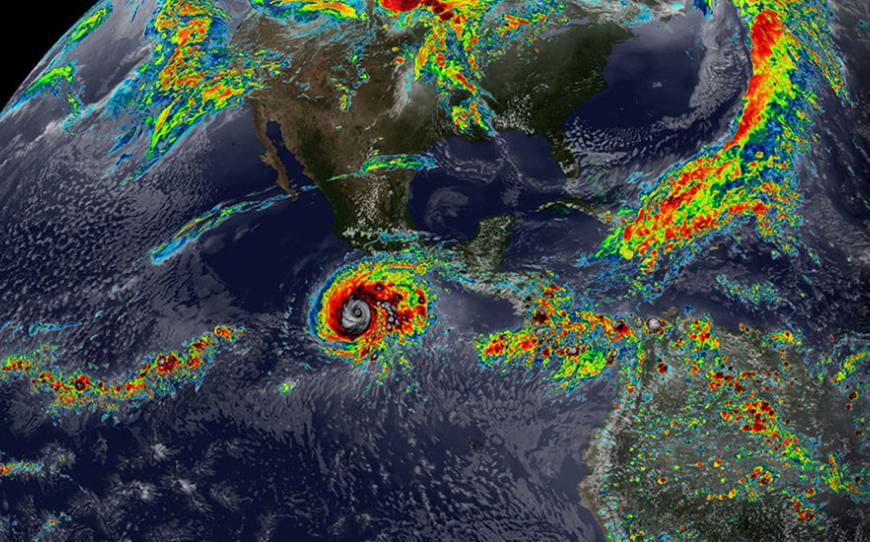Natural Hazards and Catastrophes (NHC)
Society is experiencing higher frequencies of natural catastrophes, including those due to hurricanes, tornadoes, floods, storm surge, volcanic eruptions, landslides, hail, wildfires and earthquakes. As many of these disasters are sensitive to a rapidly changing climate, their impacts are outpacing society’s ability to achieve resilience within the engineering, architecture, public health, business and governance sectors. The World Bank estimates the costs of these catastrophes at $184 billion per year, with the 2011 Fukushima tsunami and nuclear disaster alone costing $200 billion. The University of Miami’s Rosenstiel School of Marine and Atmospheric Science conducts world-class research on the earth systems responsible for these disasters, including the atmosphere, the ocean and solid earth. To meet society’s need for a skilled workforce, this program offers an educational opportunity for students seeking to fill positions offered by the private and civil sectors to assess risks and exposures associated with natural hazards.
Application procedure
Very detailed/specific application procedure. Please see attached additional source on the process.
Grant opportunities
Numerous scholarships and grants available. Please see attached additional source on the available opportunities.
Learning outcomes
The goal is to provide students with the skills and knowledge necessary to understand earth system natural hazards (atmospheric, oceanic, geological and hydrological) and the data analytics tools required to assess the associated risks (e.g. statistics, data management, programming, GIS, and remote sensing). The strategic selection of electives exposes students to legal and regulatory knowledge, communication and media training, and the development of project management skills, all designed to prepare them to address these challenges as future global leaders. This degree will prepare its graduates for employment in several sectors, including insurance and re-insurance industry, architecture, emergency management, engineering, public health and science.
Prerequisites
The University of Miami requires a minimum GRE score of 297 (verbal + quantitative only) and a United States GPA of 3.0+ for graduate program consideration. Applicants are also expected to complete the analytical writing portion of the GRE. Only the first reported scores (GRE and GPA) submitted at the time of application submission will be considered for admissions. Please read GRE & GPA requirements for merit-based tuition waiver consideration on our Financing your Education page.
Prerequisites:
- Bachelor of Science degree (B.S.) or Bachelor of Arts degree (B.A.)
- At least one of the following: one semester of Statistics or Calculus or 6 credits in Geoscience
Note to students: Deficiencies in required coursework may be considered on a case by case basis for otherwise highly qualified students or those demonstrating experience with these skills.
ISCED Categories

